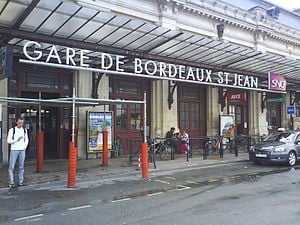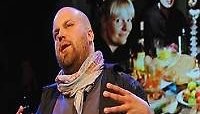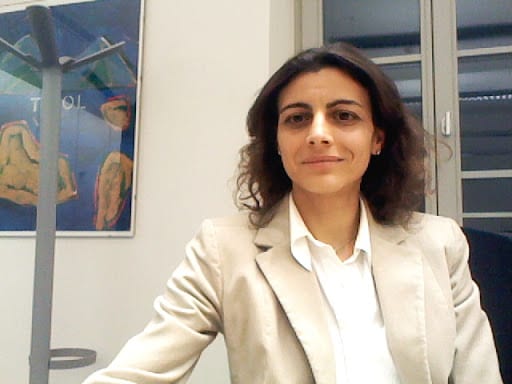Grenada: Poverty or Paradise?
Spice or Scarcity
Grenada, the host country for the recent Caribbean Tourism Organization (CTO), State of the Industry Conference (SOTIC) was held at the Radisson Hotel. The original conference topic focused on targeting new markets for increased sales and was set prior to the arrival of the hurricanes that devastated the region. The recent horrific weather-related destruction and subsequent impact on tourism pressured some of the public and private panelists and guest speakers to include a discussion of the impact of the Caribbean hurricanes on their countries and tourism products; however, as the conference venue, Grenada received much of the attention.
Spotlight on Grenada
This time Grenada was spared from hurricane horrors, unlike Hurricane Ivan (2004) and Hurricane Emily (2005). Thanks to Ivan, Grenada’s surplus of US$17million turned into a deficit of $54 million. This time, Grenada was in a position to offer assistance to neighboring islands; however, the country has its own current economic challenges, some of which were shared with conference attendees, while other matters have been explored because of unanswered questions and observable anomalies.
While the brochures and online presence for Grenada identifies it as, “The Spice of the Caribbean” and highlights its rum, nutmeg and mace production as well as its 4 organic chocolate factories, 40 pristine white sandy beaches, 30 dive sites, and the world’s first underwater sculpture park, the country has one of the highest unemployment rates in the Caribbean.
Poverty is entrenched in the very fiber of the country with links to both historic and economic factors. The island is small in size, vulnerable to natural disasters, lacks a workforce with skill-sets necessary for a 21st century economy, and an educational system that does not meet the current needs of the domestic community or international marketplace.
The poorest residents live in its rural regions and the World Bank finds that 32 percent of Grenada’s 107,000 people are designated as “poor” with 13 percent “extremely poor.” Persons aged 0-14 and young people 15-24 account for 66.4 percent of the poor population. Grenadians living in rural communities are unable to access the country’s mainstream economy because of inadequate infrastructure (i.e., poor road conditions and very limited ground transportation) and inadequate superstructure (i.e., housing, hospitals, and markets).
While farming has been an income generator for residents of the rural areas, the farming community is literally dying: The average age among farmers is 54 for women and 48 for men. The industry is adversely affected by weather conditions and when storms hit, agriculture based businesses (such as farms and fisheries) frequently suffer severe damage. This vulnerability makes it almost impossible for agricultural workers to overcome poverty. In addition, many farm workers (men and women), have limited education, technical and/or entrepreneurial skills. The channels of information (including technology and databases) that would give them access to production resources, credit and other forms of financial support, and market opportunities are not available.
In addition, people employed in many of its nutmeg, chocolate and rum factories are working in conditions that are similar to factories in the USA and UK in the 1920s.

© Qin Xie – qinxie.com.uk
Approximately half of the nutmeg factory workers participating in a recent study (Occupational exposure and respiratory health problems among nutmeg production workers in Grenada, the Caribbean) showed signs of lower respiratory symptoms such as dry cough (49.4. percent) and shortness of breath (42.9 percent) – symptoms that are work-related. Spirometry (measures lung function) results showed that 18.8 percent of workers had obstructions. Another study found high levels of dust concentration and mold spores among the workers. (Muge Akpinar-Elci, Satesh Bidaisee, MyNgoc Thuy Nguyen & Omur Cinar Elci, International Journal of Occupational and Environmental Health)
Grenadian youth eschew agriculture based employment because of its perceived instability, their lack of interest in physical labor and very low wages. The Grenada Growth and Poverty Reduction Strategy document finds, “workers can do hardly more than survive.” The younger generations prefer employment in the tourism industry, but many lack the necessary education, professional and social skills necessary for entry – level employment and the development of a viable career track.
Crime
While official government sites indicate that Grenada has a favorable record in providing a safe environment, statistics suggest something else. The country, with a population of approximately 106,000, reported (in 2016): 10 murders, 273 sexual assaults, 941 residential burglaries, 740 drug related crimes and 6 shootings.

To further question the validity of the reported “safe environment,” it is interesting to note that The Royal Grenada Police Force recently received 100 bulletproof vests. (Joyce Loan, WICnews.com, August 7, 2017)
Seb Kelly, with WIC news.com (September 23, 2017) reported that with an increase in sex crimes. To deal with some crimes, Chester Humphrey, the President of the Grenada upper parliamentary house, requested flogging with a cat-o’-nine tales for people convicted of sex crimes. This would allow justice to be “swiftly delivered.” He feels that current sentences are too lenient.
Women at Risk

Approximately 45 percent of the households in Grenada are headed by women. The men have left the family and the country in search of employment. The young men that remain feel disenfranchised, have little involvement in the community and find it difficult to engage in local economic activities.
For women, teenage pregnancy is common and young mothers end their education to look for work in order to provide for their children. With few employment opportunities, it is difficult to sustain themselves and their families. In addition, there is little financial and other care-giving support from the fathers of these children. Unfortunately, the women are not familiar with their rights and are unable to source and use the opportunities and services that may be available to them.
While women in Grenada have legal and political rights, there is evidence to support the fact that gender inequity continues to exist. Research indicates that the women head of households are vulnerable to poverty and social exclusion; however, it is these very women who could be the economic and social forces necessary for long-term human development and the stemming of long-term intergenerational poverty.
Cost of Living
Grenada, twice the size of Washington, DC, has a GDP per Capita of $3,900 USD. In 2011, domestic workers received a minimum monthly wage of $277.99 (formerly $148) and the minimum wage for a security guard was $2.96 per hour (formerly $1.48). The increase was negotiated by the Wage Advisory Committee (includes representatives from the Grenada Trades’ Union Council and Grenada Employers’ Federation).
Living in the capital of Grenada, Saint George, can be expensive. Research finds that it is 87.2% more expensive than Houston, Texas for groceries; 60.5% more expensive for household costs than Kuala Lumpur, and 43.6% more expensive for transport costs than Dubai. In addition, medical treatment is expensive and medical facilities are considered adequate for general treatment; however, serious emergencies may require evacuation.
The cost of a VW Golf is US$37,000; monthly utilities (electricity, water, heating, cooling, and garbage) for a 915-sq.-ft. apartment – US$82.95; childcare – per month/per child – US$129.51.

Business and Finance
According to the World Bank’s 2010 Enterprise Survey, some of the key obstacles to doing business in Grenada and the main threats to private-sector development include:
1. High tax rates
2. Inadequately educated workforce
3. Problems with access to finance
While Grenada has several institutions that are supportive of business development, as well as a fairly transparent system for doing business, the island’s overall ranking of 107th (out of 189 countries) in the World Bank’s Ease of Doing Business index for 2014 is indicative of a relatively unsupportive business environment. Within the Caribbean region the only countries with lower rankings were Haiti (177th), Suriname (161st), the Dominican Republic (117th) and Guyana (115th).
One of the main reasons underlying Grenada’s mediocre ranking in the Ease of Doing Business index is the time taken to start a new business and the associated costs. For example, it normally takes 15 (World Bank) -31 days to start a business in Grenada, nine more than in Jamaica, the best performer on this indicator among the comparison countries.
Local banking is considered to be underdeveloped (especially commercial banks) and it is difficult for business owners to secure venture capital and project support, forcing developers to use their own funds and retained earnings or commercial bank credit to finance operations and new projects. There is very limited access to overseas financing options.
Grenada also faces an imbalance in its foreign trade, importing US$276,000,000 (food, manufactured goods, machinery, chemicals, and fuel) and exporting US $40,000,000 (bananas, cocoa, nutmeg, fruit and vegetables, clothing, and mace).
Transparency International ranked Grenada as being the most corrupt country in the Windward Islands grouping in the area of Public Sector corruption. In the February 6, 2017 issue of thenewtoday.gn, Jude Bernard said that “…the evidence of corruption is hurting and infringing on the possibilities of development in the country and continues to be one of the major deterrents to unity and development.”
Grenada’s Citizenship by Investment program is a major player in the Caribbean market, according to Veronica Cotdemiery, CEO of Citizenship Invest (AMEInfo.com, July 10, 2017). The country’s passport offers visa free access to over 120 countries including the US, Schengen and China. It is only Caribbean country with a fast track citizenship program which signed a Commerce and Navigation Treaty with the USA. In return, the USA allows Grenada’s citizens to fall under the E-2 non-immigrant classification. Therefore, a Grenada citizen can obtain US residency by making an investment of approximately $100,000 in a business in the US that employees a minimum of 3 people.
There is growing international interest in Grenada. The Russian backed Global Petroleum Group was recently licensed to prospect for offshore oil and gas and the Russian government has held discussions with members of the Grenadian government to assist the local economy through scholarships, training, debt relief, the establishment of an embassy to the Russian Federation and a visa waiver agreement. (David Jessop, Caribbean News Now, October 27, 2017)
The PRC has had investments in Grenada for many years, providing $55 million for a cricket stadium before the 2007 Cricket World Cup games. According to Lu You of the China Daily (June 2, 2017), Chinese companies have investments in real estate, restaurants and aquatic products in Grenada. Two years ago, the countries signed a mutual visa waiver agreement, allowing Chinese passport holders to enter Grenada without a visa and to stay for up to 90 days. Currently there are no direct flights from China to Grenada; however, there are discussions with Chinese airlines to fly from China to Cuba and then onto Grenada. A large investment may include the option for attaining permanent residency and citizenship.
It has also been reported that the Chinese company, United Demi Group, (led by Charles Liu, Grenada’s commercial attaché at its Beijing embassy), that the PRC plans a US$2 billion investment to develop the Mt. Hartman peninsula and Hog Island area. The complex will include resorts, a wellness center, recreation and entertainment options. (caribbeanjournal.com, June 3, 2015)
Gift with Purchase
International billionaire Naguib Sawiris, the former chairman of Wind Telecom and Orascom Telecom Holding, is investing approximately US$60 million to develop a hotel and villa project at Grand Anse Beach. The villas range from 13,500 to 26,500 square feet and include the opportunity to acquire Grenadian citizenship with a villa purchase. The architect for the project is Nigel Renwick with TVA Consultants, and Paris, France based AW2 is developing interiors. Silver Sands, due to open in 2018, is a sponsor for the Grenada Pavilion at the La Biennale di Venezia. Prices for villas range from $5,000,000 – $10,000,000.

Tourism Prospects
Tourism leads the economy in the countries that are part of the Organization of the Eastern Caribbean States (OECS) (Grenada, Saint Lucia, Saint Vincent and the Grenadines); however, the region accounts for less than 0.2 percent of world tourism arrivals and receives less revenues than the rest of the Caribbean.
Grenada relies on tourism – it is its primary source of foreign exchange and services provide 76.60 percent of its GDP. Because of its dependence on this sector (since 1985), the economy experiences what has been identified as an economic “see-saw” and is reactive to the economies of its source tourism markets. For example, when the economy in the US or UK expand, tourism increases; however, when these markets are contracting, tourism declines. When tourism drops – other industries contract (i.e., construction, restaurants, wholesale and retail trade, imports).
Although the prime foreign currency generator is tourism, the fiscal budget for Grenada sends a different message. In the supplementary budget, EC$6.2 million (US$2,294,129.62) was allocated to the Office of the Prime Minister, with the tourism ministry receiving only EC$144,820 (US$ 53,586.43). This was the smallest amount allocated to any ministry listed in the Supplementary Appropriation Bill 2017.
Recent tourism statistics are not encouraging. Comparing 2015 to 2017 (November to April): Cruise arrivals from the beginning of November 2016 to the end of April 2017 fell by 12.81 percent as compared to the November 2015 – April 2017 period. This is a decline from 316,778 to 276,203. In April 2017 there was a 47 percent drop from the previous year.
To stem unfavorable comments from cruise ship visitors about their experiences in Grenada (i.e., “…inaccurate historical information, deportment of tour guides, fees charged that are unrelated to the service provided and tour routes taken that cannot be considered appropriate…”), The Grenada Tourism Authority, in collaboration with the Willie Redhead Foundation, developed new programs and training opportunities that recently graduated 10 participants (caribbeannewsnow, October 27, 2017).
Yachting arrivals also declined by 16.35 percent. The only positive tourism indicator was an increase in stay-over visitors with an increase of 0.47 from 72,604 to 72,945 – a small increase of 300 extra visitors
Tourism attracts foreign direct investment. In 2012 Founder and Chairman of Sandals Resorts International, Gordon “Butch” Stewart invested over US$80 million in Grenada. His project employed local construction workers and currently employs resident Grenadians as hotel staff.
Optimistic
In spite of all its challenges, Grenada recently received a vote of confidence from the IMF indicating that the country was reducing the Debt-to-GDP ratio, lowering it to 83.4 percent at the end of 2016 from 108 percent in 2013. The country was also congratulated for strengthening its banking system and improving financial stability. The IMF recommended the country build up reserves to help the country respond to future shocks. The good news resulted in a loan of US$2.8 million bringing total resources to Grenada to US$19.4 million.
Another indication of a brighter future for Grenada has been demonstrated by the Board of Directors of the Caribbean Development Bank (CDB) who recently approved a grant of US$1.2 million to the government for a feasibility study and detailed designs for an upgrade of the western corridor that runs between the capital city of St. George’s in the southwest of Grenada and Victoria in the northern parish of St. Mark. Grenada is providing additional funding of US$ 92,214.10 for the project as this road is an important thoroughfare for people working in the capital and a link for farmers in the north to get their products to the port facilities in the south (Caribbean News Now, October 23, 2017).
In addition, the Grenada Airports Authority (GAA) plans to develop an Aviation Training Center at the Maurice Bishop International Airport and construct a Grenada Aviation Academy in cooperation with Vaugh Aeronautical College. Classes will include Aircraft Maintenance, Flight Dispatch Operations and Airport Operations. The objective is to have Grenada become a pivotal hub in the Caribbean for tourism, cargo and Aviation training.

Turning Blue
The United Nations Development Fund (UNDP) supports Grenada’s newest initiative – turning into a Blue Economy. The focus of this project is to develop a healthy balance between oceans and coastal ecosystems.
Gail Hurley, Policy Specialist with the UNDP reported (March 2017), that Grenada’s ocean space is 75 times larger than its land area. In addition to its 345 square kilometers of land, the country has 26,000 square kilometers of blue ocean space which presents opportunities for economic diversification. By following a Blue Economy approach, it will ensure ocean development to expand its economic output, create jobs, reduce poverty and build local skills by conserving its natural environment. The Blue Economy will enable the enhancement of fisheries and aquaculture, renewable energy, research and innovation. The project includes the development of a Blue Innovation Institute and act as a think tank for the new/blue economy that will develop innovative financing such as debt-for-nature swaps, blue bonds, blue insurance and blue impact investment opportunities.
The UNDP is encouraging development of blue social impact bonds and investigating how aid providers can make financing more responsive to national development priorities. The reach this objective, the UNDP is providing technical support.
Although Grenada currently faces economic and social challenges, the world financial sector appears optimistic, creating the opportunity for the leaders of Grenada’s public and private sectors to develop the natural resources of the country. “A leader’s role is to raise people’s aspirations for what they can become and to release their energies, so they will try to get there.” (David Gergen)
© Dr. Elinor Garely. This copyright article, including photos, unless otherwise notated, may not be reproduced without written permission from the author.



